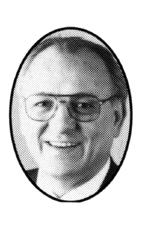Mr. Speaker, as I understand it, the allegation is that Mr. Peltier was employed by the former government at the time of the Oka crisis. I do not know if that is correct or incorrect. If my hon. friend has information to that effect, will he please bring it forward and it will be examined.
It is difficult in the daily operation of a band to go in and interfere because of the inherent right of self-government. On the other hand, we have an onus to make sure there are checks and balances that work.
As minister I have instructed my officials to examine the allegations carefully. Hopefully there will be some evidence forthcoming from my friend. I am committed to bring fiscal accountability to the House and present any reports that we have.

